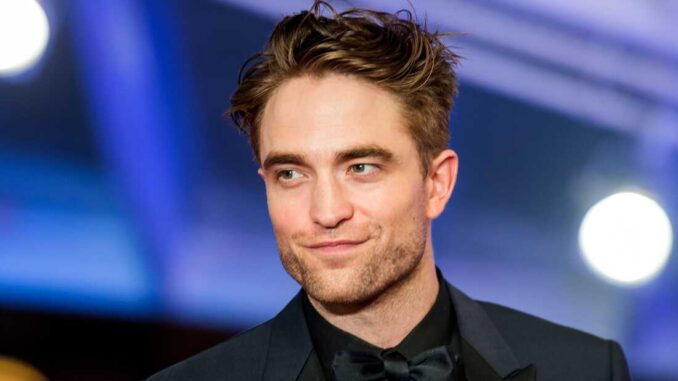
The air around Robert Pattinson, for over a decade, felt thick with an unspoken agreement. His name, for a generation, was synonymous with Edward Cullen, the brooding, glittering vampire of the Twilight saga. And for just as long, it seemed, Pattinson himself maintained a strategic, often wryly self-deprecating, silence about the role that catapulted him from relative obscurity to global superstardom. It was a silence born of overwhelmed celebrity, artistic yearning, and perhaps a simple desire to reclaim an identity swallowed whole by a pop culture phenomenon.
Then, gradually, the silence began to fray, and eventually, to break. It wasn't a dramatic press conference or a tell-all interview, but a series of nuanced, retrospective acknowledgments that resonated deeply. When Pattinson finally spoke, truly spoke, about Twilight, the prevailing sentiment was clear, concise, and profoundly true: "It changed everything."
For those who lived through the Twilight years, the phrase resonates with a specific kind of intensity. The films, based on Stephenie Meyer’s wildly popular novels, weren't just blockbusters; they were a cultural epoch. They spawned fandoms of unprecedented fervor, redefined the young adult genre, and turned their lead actors into figures of almost mythical adoration and scrutiny. For Pattinson, the transformation was instantaneous and overwhelming. One moment, he was a struggling actor; the next, he was the face on millions of posters, the subject of ceaseless tabloid speculation, and the recipient of a level of fanatical devotion that bordered on terrifying. This abrupt transition was the first, and perhaps most disorienting, way Twilight "changed everything." His privacy evaporated, his personal life became public domain, and his very persona was subsumed by the glittering, immortal shell of Edward Cullen.
The initial silence, therefore, was a form of self-preservation. Pattinson's subsequent career choices were a deliberate, almost defiant, rebellion against typecasting. He veered sharply into independent cinema, working with auteur directors on challenging, often unsettling, films. He inhabited strange, gritty characters in Cosmopolis, The Rover, Good Time, and The Lighthouse, seemingly intent on stripping away every last vestige of the teen idol sheen. This period of intense, often dark, artistic exploration was a testament to his commitment to being seen as a serious actor, not just a heartthrob. His silence about Twilight during these years was not an act of dismissal, but an act of assertion – a silent scream that said, "I am more than that." It was a necessary exile to find his true artistic north.
The breaking of this silence, therefore, signals a profound shift. It suggests a man who has not only survived the maelstrom but emerged from it with a newfound perspective, secure enough in his current stature – perhaps cemented by his casting as Batman – to revisit the past without fear of being trapped by it. When Pattinson now speaks of Twilight, there’s often a wry humor, a genuine sense of gratitude for the opportunities it afforded, tempered with an honest acknowledgment of its absurdities and pressures. He recognizes that the financial security and global recognition Twilight brought allowed him the freedom to pursue the very independent projects that forged his current artistic credibility. In this sense, "it changed everything" not just by giving him fame, but by giving him the option to pursue art on his own terms.
The paradox of Twilight's impact on Robert Pattinson is perhaps the most illustrative aspect of his journey. It was a gilded cage that, through his own perseverance, became a springboard. It was a defining role that initially threatened to overshadow his entire career but ultimately became the foundation upon which he built a remarkably diverse and respected filmography. His breaking of silence isn't just a simple admission; it's a testament to growth, to the acceptance of one's past, and to the understanding that even the most overwhelming experiences can be integrated into a richer, more complex identity.
Ultimately, Robert Pattinson's belated, nuanced engagement with his Twilight legacy serves as a powerful illustration of an artist navigating the treacherous waters of immense fame. "It changed everything" is not a lament, nor is it a boast. It is a simple, undeniable truth, reflecting a journey from reluctant idol to respected craftsman, a journey made possible, ironically, by the very role he once seemed so eager to outrun. His voice, finally unburdened by the need to escape, now echoes with the wisdom of experience, confirming that some shadows, once embraced, can illuminate the path forward.
